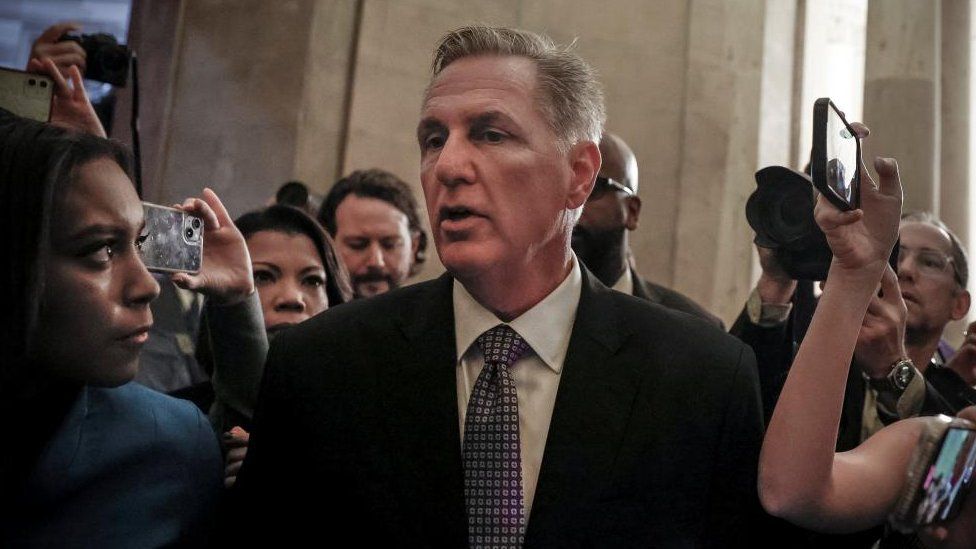Table Of Content
- Partisan role
- House voting now to pass resolution in support of Israel in war against Hamas
- Speaker pro tempore
- Girls Academic Leadership Academy: Dr. Michelle King School for STEM
- His solidly conservative voting record
- Tom Emmer won nomination only to drop out after opposition by Trump and far right
- What comes next after Johnson's election

Though it was not certain he had the votes to be elected, he said he planned to call for a floor vote on Wednesday at noon. Jeffries’ position was made official after the conclusion of a prolonged floor fight that culminated in Republican Kevin McCarthy becoming House speaker. On the other hand, when the speaker and the president belong to opposite parties, the public role and influence of the speaker tend to increase. As the highest-ranking member of the opposition party (and de facto leader of the opposition), the speaker is normally the chief public opponent of the president's agenda. In this scenario, the speaker is known for undercutting the president's agenda by blocking measures by the minority party or rejecting bills by the Senate. The speaker in the United States, by tradition, is the head of the majority party in the House of Representatives, outranking the majority leader.
A choice between Churchill and Chamberlain appears to resonate with the House Speaker - Kitsap Sun
A choice between Churchill and Chamberlain appears to resonate with the House Speaker.
Posted: Fri, 26 Apr 2024 16:32:32 GMT [source]
Partisan role
The House is now voting to pass a resolution in support of Israel in the war against Hamas – the first measure to come to the floor to be passed after Speaker Mike Johnson was elected this morning following three weeks of a speakerless-House. The House passed a resolution in support of Israel in the war against Hamas – the first measure to come to the floor after Speaker Mike Johnson was elected earlier Wednesday following three weeks without a speaker. Additionally, since many speakers held office for multiple terms, often with non-consecutive periods, the time listed for each speaker represents the total length of their time as speaker. It is important to note that the period between the adjournment of one Congress and the convening of the next Congress is not included in the calculations. For instance, Nathaniel Macon served as speaker during both the 8th and 9th Congresses, but the eight-month gap between the two Congresses is not included in his service duration.
House voting now to pass resolution in support of Israel in war against Hamas
His predecessor, Frederick Gillett of Massachusetts, also had the top job for less than five years. But when he left after the 1924 session, his party was still firmly in control and had just elected President Calvin Coolidge to a full term. She could activate a vote at any time so Johnson should know he is skating on thin ice. Not helping matters is Johnson’s decision last week to lock arms with George Santos before a two-thirds majority of the House chose to expel him from the chamber, a dicey vote that left swing-district Republicans in a lurch. During the speaker battle, Trump proved more adept at hurting candidates than helping them win — his early endorsee, Jordan, flamed out on the floor. But Johnson's ability to avoid Trump's ire cleared a hurdle for him within the House GOP, which is attuned to the wishes of the "MAGA" base.
Speaker pro tempore
The chairman of the House Appropriations Committee, Bob Livingston, declared his bid for the speakership, which was unopposed, making him speaker-designate. It was then revealed, by Livingston himself, who had been publicly critical of President Bill Clinton's alleged perjury during his sexual harassment trial, that he had engaged in an extramarital affair. He opted to resign from the House, despite being urged to stay on by House Democratic leader Gephardt. The Republicans retained their majorities in the 2000, 2002, and 2004 elections. From early in its existence, the speaker's primary function had been to keep order and enforce rules. Furthermore, when no candidate received an Electoral College majority in the 1824 presidential election, causing the president to be elected by the House, Speaker Clay threw his support to John Quincy Adams instead of Andrew Jackson, thereby ensuring Adams' victory.
Girls Academic Leadership Academy: Dr. Michelle King School for STEM
"This is a time for all of us to act responsibly, and to put the good of the American people and the everyday priorities of American families above any partisanship." Any candidate for speaker can lose only a handful of votes and still win the speakership because Republicans hold such a small majority in the House. Representative Jim Jordan of Ohio, a founder of the hard-right House Freedom Caucus and someone Mr. Johnson has described as a mentor, was the next member to be elected speaker designate in a secret ballot.
His solidly conservative voting record

Mainstream conservatives who backed Mr. Johnson said they hoped to quickly move to pull the House out of its funk. Almost immediately after Mr. Johnson was elected, lawmakers began debating a resolution expressing solidarity with Israel and condemning Hamas, which passed overwhelmingly. Mr. Johnson has opposed continued funding for the war in Ukraine, which has emerged as a bitter fault line in the G.O.P. and in the spending battles that he will have to navigate in the coming days.
"We have to ensure Vladimir Putin is not successful, and I think all the House Republicans are united in that cause." Johnson claimed to reporters that he's never opposed funding or aid for Ukraine. Stefanik called Johnson "a friend to all" and "an enemy to none," who is not only "strong, tough and fair," but also "kind." "Today is the day that House Republicans will humbly look in our hearts and elect Mike Johnson as speaker of the People's House," she said. The California Democrat noted Johnson's role in the effort to overturn the results of the 2020 election. Shortly after 1 p.m., the House began voting for speaker, with Johnson as the Republican nominee and Jeffries as the Democratic nominee.
Character of the city
She comes in at fifth on the longevity roster, having served one day shy of eight years from 2007 to 2011 and again from 2019 to 2023. The list of the 10 speakers who served in the job longest includes just one Republican (and in the ninth slot at that). That speaker was Joseph G. Cannon of Illinois, notorious as the autocratic "Czar Cannon" during three two-year tours as speaker that ended with his party's historic defeat in 1910. Prior to that, the last Republican speaker had been Nicholas Longworth of Ohio, who died in 1931.
The House has been in a state of uncertainty and chaos since Oct. 3, when rebels forced a vote to oust Mr. McCarthy as speaker. Eight Republicans backed that move along with Democrats, who remained united behind their own leader, Representative Hakeem Jeffries of New York. Republicans had cast aside two previous winners of their closed-door nominating process — Representative Steve Scalise of Louisiana and Representative Jim Jordan of Ohio — before settling on Mr. Emmer. He has also opposed continued funding for the war in Ukraine, which has emerged as a bitter fault line in the G.O.P. and in the spending battles that any new speaker will have to navigate in the coming days. Representative Mike Johnson, a little-known social conservative from Louisiana, emerged on Tuesday night as the latest contender for the post after Representative Tom Emmer of Minnesota, the No. 3 House Republican, dropped his bid only hours after securing the nomination.
House conservatives are signaling they’ll give the newly minted House Speaker Mike Johnson some runway and flexibility as the House barrels toward a November 17 spending deadline to fund the government. Albert's successor, Democrat Tip O'Neill, was a prominent speaker because of his public opposition to the policies of President Ronald Reagan. Republicans made O'Neill the target of their election campaigns in 1980 and 1982 but Democrats managed to retain their majorities in both years.
Speaker Gingrich would regularly clash with Democratic President Bill Clinton, leading to the United States federal government shutdown of 1995 and 1996, in which Clinton was largely seen to have prevailed. Gingrich's hold on the leadership was weakened significantly by that and several other controversies, and he faced a caucus revolt in 1997. After the Republicans lost House seats in 1998 (although retaining a majority) he did not stand for a third term as speaker. His successor, Dennis Hastert, had been chosen as a compromise candidate since the other Republicans in the leadership were more controversial. Hastert played a much less prominent role than other contemporary speakers, being overshadowed by House Majority Leader Tom DeLay and President George W. Bush.

No comments:
Post a Comment